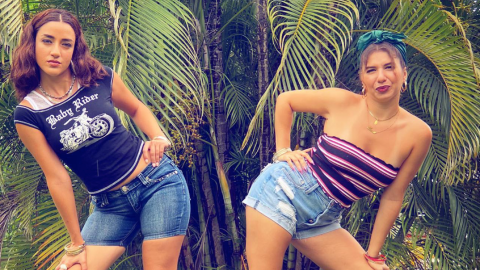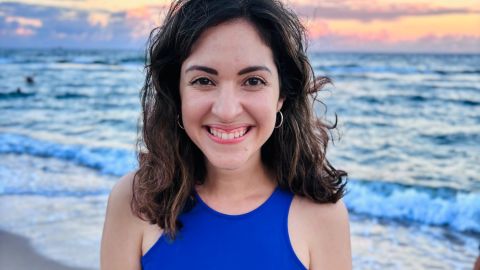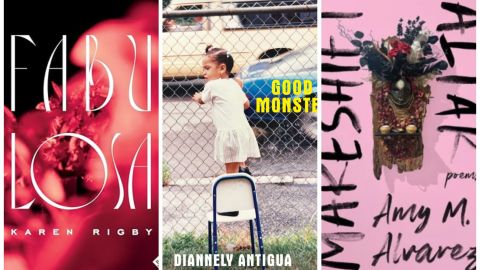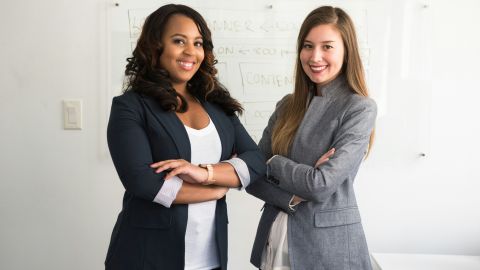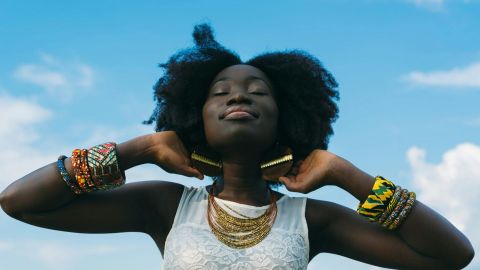Colombian Inclusive Model Steffi G is Dedicated to Empowering the Disabled Community
Steffi Gonzalez (@therealsteffig) doesn’t need prayers because she’s disabled all she asks for her is respect and a willingness for people to learn that “disability” is NOT a bad word
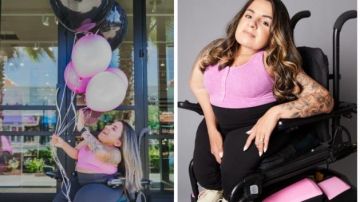
Photos courtesy of Steffi G
Steffi Gonzalez (@therealsteffig) doesn’t need prayers because she’s disabled all she asks for her is respect and a willingness for people to learn that “disability” is NOT a bad word. In a viral reel, she’s seen coming out of her Silverado pickup truck that’s been customized to accommodate her needs. This confidence comes with a mission to educate people about the disabled community and to get rid of the stigma surrounding disabilities. The 33-year-old inclusive model and beauty influencer is using TikTok and Instagram, where she has a collective of nearly 33K followers, to amplify empowering disabled narratives.
@therealsteffig Necessary Monday reminders #adaptivedriving #disabledcommunity #disabledcontentcreator #disabilitytiktok
“Our community matters, we are no longer interested in hiding for fear of rejection! We are here to call out ableism and fight exclusion,” she wrote in the caption of the viral post. When Steffi was born she was diagnosed with Osteogenesis Imperfecta (brittle bones disease) and given 24 hours to live so to see her not only survive but thrive and become a vocal advocate for her community is a story of triumph — partially thanks to her mom.
Steffi was born in Cali, Colombia and raised in Miami after her family moved there when she was 10 years old. “My mother saw little potential for me in our country due to the lack of accessibility and disability awareness in general. She knew I wanted to do many things that were not possible in Colombia, so my family migrated to the United States in search of more opportunities,” she tells HipLatina.
She was clinically diagnosed with type II which she says is considered lethal. She also has scoliosis, asthma, and as of 2017 a rare tumor in her lower jawbone. Yet despite the myriad health issues, she credits her family with teaching her resilience “because giving up was never an option.” That’s not to say she hasn’t encountered difficulties through the years. She describes growing in Miami as fun yet still challenging from a lack of access in schools to outright discrimination when she applied for job.
“I once had a manager at a medical lab walk me through the whole office asking me ‘How will you reach the fax machine?’ ‘How will you reach printed papers?’ ‘How will you work on filing, look how high these cabinets are?’ until I started crying and left.”
She shares other stories of discrimination in the workplace including being shown a dark office away from the main office space because it was the only somewhat accessible option. Another job forced her to work 12-16 hour shifts despite her inability to do so because of her chronic illness and then threatened to fire her if she didn’t keep it up. It was that toxic environment that lead her to prioritize her physical and mental health first and that prompted her move to Jacksonville, Florida.
She began sharing bits of her life on social media with a small circle of friends and family led people to see her accomplishments and question how she’s capable of basic tasks. This curiosity sparked in her a desire to educate people who think being disabled means you are incapable of living a normal life. She grew frustrated not seeing herself represented in media and decided to embrace the idea of being a change maker to literally be the change she wanted to see.
When the pickup truck reel went viral, it was a milestone as a content creator but it was also a lesson in just how much ignorance there is surrounding the disabled community and she views it as a “learning opportunity.”
“I take control of the narrative when it comes to ‘trolls’ and turn the conversation around to a learning opportunity. I’ve always been a believer in ‘innocent ignorance’ and I approach it with grace,” she says. “I am also happy to see just how many people cheer me on, and see beyond the disability to acknowledge the ‘cool’ conversion, the actual person in the wheelchair, and little things like my shoes.”
It’s evident she relished the opportunity to have these conversations after she uploaded several TikToks responding to the negative and inquisitive comments on the video. One such comment was “humble yourself” to which she responds, “we’re gonna let disabled people be a bad b*tch.” Mic drop.
@therealsteffig Replying to @kelceerynaee theres gonna be a whole lot of spicy Steffi on this app especially for #disabilitypridemonth 🙃
There are 61 million people living with a disability in the U.S. and of those, 8.9 percent were Latinx in 2017, according to a Cornell University report. Steffi’s existence on the trendiest social media platform speaking up for the disabled community with such pride is no small feat. She’s shifting the narrative from disabilities being a detriment and a burden by standing in her power and not shying away from showing what life looks like with disabilities.
“I wish people could shift their mindset of thinking we live sad and low-quality lives to understanding that we experience happiness and success just like any other human being,” she says. “That is my true purpose, to change the narrative from people seeing us in shock, to people hyping us up for the cool things we get to do in life.”
Personally, a major moment for Steffi was getting to be a part of the #SephoraSquad, a program that launched in 2019 and is dedicated to showcasing a diverse array of influencers. She shares that she’s experienced impostor syndrome because of the opportunities she’s been given including being a #AerieREAL and a Visit Jacksonville ambassador but being part of the #SephoraSquad changed that for her.
“When I applied to be on the #SephoraSquad I did it to challenge myself and had no expectations, because it’s something I did not think was possible,” she shares. “The moment I saw an accessible van with the #SephoraSquad logo pull up for me I knew I belonged to something beautiful and my heart knew the beauty space was ready for me.”
This recognition from major brands felt like validation for her work advocating for inclusion which she sees as her life’s purpose. Her posts are a mix of beauty content, everyday life moments including those with her husband, and her advocacy posts — a reminder that disabled people are more than their disabilities.
“We have goals and dreams, we succeed and we fail, we love and are loved like anyone else.
Yes, we look different, we may do things different due to our disabilities, and we might need certain accommodations that the next person does not. But that does not change our worth, our place in society and our purpose to fulfill our dreams,” she says. “Dream big and work hard, challenge yourself to step out of your comfort zone and believe that there’s an incredible power inside of you waiting for a chance to shine. Let that power take over and believe that you are worthy of every single opportunity that comes your way.










